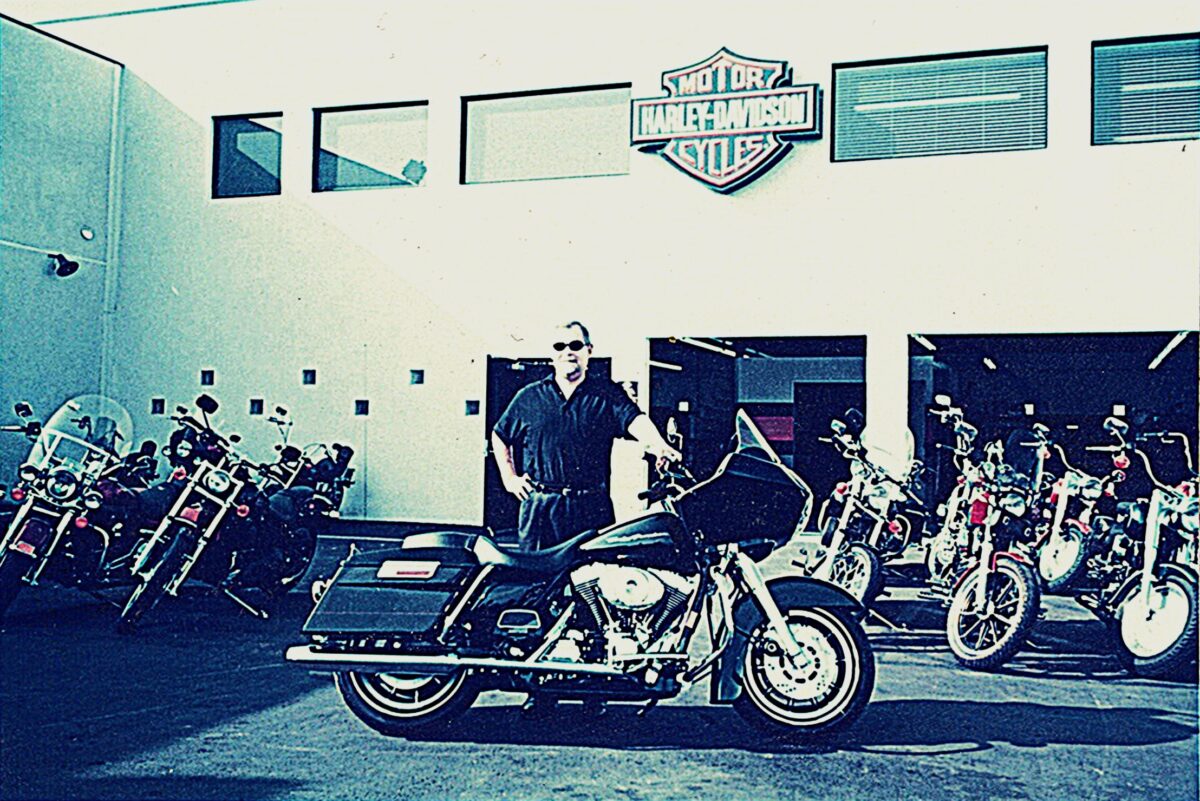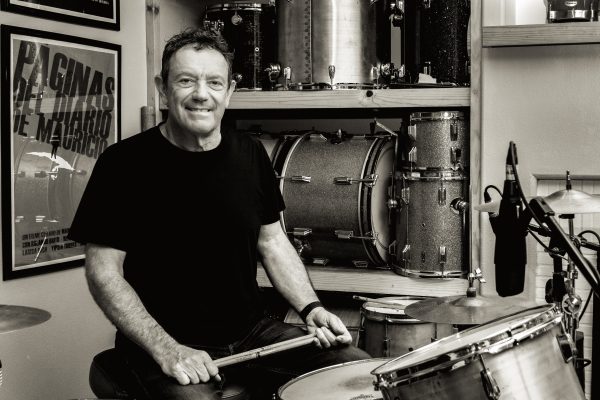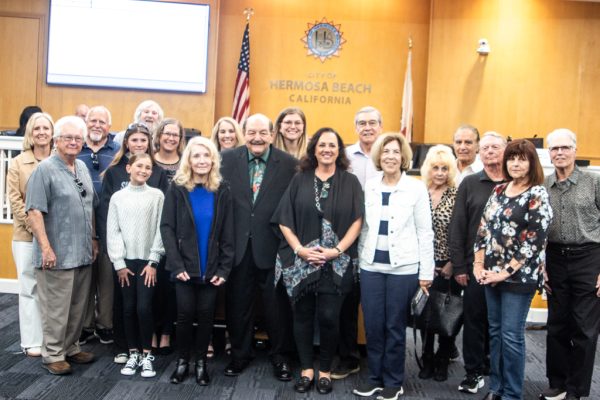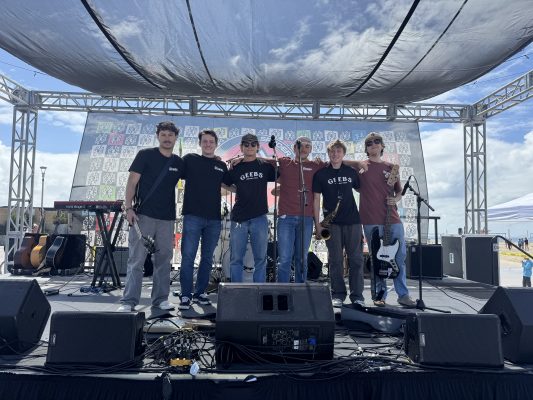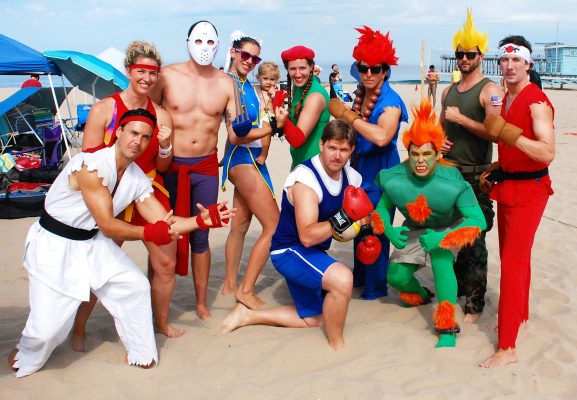A ride into the desert on a new Harley leads to a woman with an eye patch and a memory like a desert mirage
by W.J. O’Hearn
This is a story about events many years ago, and because of the passage of time, and how that journey has affected me, and the impressions that have been left on me, I can not swear that every detail is accurate. In fact, I am pretty sure that much of this isn’t factually sound at all. But I can assure you that the essence and the flavor is true. As Joan Baez wrote “We both know what memories can bring, they bring diamonds and rust.” Maybe this tale is a little of both, and maybe not.
I was in a garage near the ocean somewhere southwest of Los Angeles on an early July evening in 1998 preparing a new motorcycle for a trip to Santa Fe, New Mexico, to meet a friend from Boulder, Colorado. The bike was a powerful mass of shiny black plastic and chrome, the first year of a new Harley Davidson model called a Road Glide. It was sleek by Harley standards and looked more like a bullet train than a ‘50 police bike. It resembled something that had been designed by an Italian sports car maker rather than a military equipment builder or American truck manufacturer. It hummed as it flew.
While stowing road gear and buffing the shine, I was listening to a program on public radio about Mary Coulter. Coulter was an architect who had designed most of the Harvey House hotels and other establishments that dotted the Santa Fe Railway line through the southwest and anchored national parks in the west. Many of her contributions were and are operational and beautifully maintained, such as the Bright Angel Lodge at the North Rim of the Grand Canyon.
At the end of the program, the narrator mentioned an exception: it was a dilapidated example in Winslow, Arizona, a once grand building that housed railroad personnel and operations while it sheltered and entertained travelers under the name “La Posada.” It had become a depressing flophouse for mostly Navajo alcoholics at the east end of town just south of where the 89 highway spills out from the mountains on to Route 66, near the famous corner with a statue of a singer and his guitar. Some young entrepreneurs were taking advantage of ‘historic building’ tax credits to restore the hotel. Being a bit of a southwest history buff, I decided that it would make an interesting stop on my way to Santa Fe.
The next morning, I powered through the Mojave desert east of Indio in the chilly dawn light. A sense of freedom grew with the rising sun as I left my civilization behind. Then north through the high desert yuccas and saguaros to the mountains of Prescott, across the Mogollon Rim and its emerald evergreens, and down to the delta of Winslow. When I arrived at La Posada, it looked quiet and serene alongside the railroad tracks, like a mission on the edge of town ministering to long gone railway passengers. It had a gravel parking lot and shaded gardens and paths. Inside there was nothing but sawhorses, electrical chords, scaffolding, and tools, with an isolated desk in the midst of the turmoil.
A nice young man explained that there were only three or four rooms open for lodgers and that I was the only guest at the time. I signed the guest book feeling adventurous and honored, then took my heavy metal key to the room. Each of the rooms were named after a celebrity who had visited the hotel in the glory years, or some icon of western film lore. Each was outfitted individually with period furniture. I think that my room was the Will Rogers, but I am not certain of that.
There was no bar or restaurant on site but the Casa Blanca, a small Mexican café just down the road, served cold beer and excellent green chile and cheese enchiladas. I dined in dreamy peace. And so began an annual ritual of visits to La Posada on my mighty black iron road horse as I watched the hotel grow and ripen. More rooms were renovated and an excellent restaurant was introduced, The Turquoise Room, specializing in modern southwestern cuisine, was my favorite repast.
Galleries blossomed throughout the building featuring modern southwestern and Native American art. Innovative conceptual artwork began to appear on the walls of the many parlor rooms and a museum was eventually added. I continued to visit, sometimes with friends, family, girlfriends of the moment, and when there were none, alone. I drank ice cold Mogollon beer in the small cantina on hot afternoons after rides from Gallup. We drank Perfect Manhattans in the restaurant and sat in the gardens watching the summer evening stars and the arriving and departing trains. Sometimes, I stopped on my way from Los Angeles to Santa Fe or Cheyenne, Wyoming, and other times I visited while returning home from Boulder or Ourey, Colorado. It was always an oasis of fond memories and fresh experiences.
Sometime after that first visit, I met a guy who had ridden his Harley alone from Minnesota or Milwaukee, or some other distant northeastern area. We talked in the parking lot outside of a laundry room near a pool with a waist high block wall around it at a roadside Route 66 hotel in West Winslow. He told me, somewhat in awe of the mysteries of life, after I had recounted a story of helping to rescue a man who had been buried by a pile of firewood that slid off the back of a truck in the middle of the high desert, that “magical things happen when you ride alone.” I had to agree, but I did not consider that one of those experiences would happen at the other end of town just a few visits later.
On one of those trips west from Colorado I pulled hot and dusty into the still gravel parking lot on a very late August afternoon. An unusual couple caught my eye as they were unloading suitcases from a large, faded yellow Detroit convertible that looked like a road boat. Just ahead of me, a brown haired boy about 7- or 8-years-old wearing a Grand Canyon T-shirt wandered toward the entry while a tanned brunette woman, his mother I assumed, struggled with the luggage to the lobby door. I headed to my room for a shower and clean shirt. I didn’t think more about them until I saw the mother, again in the lobby, studying the artwork. She was sipping a glass of white wine and thoughtfully considering a painting. I watched her in the same way she was contemplating the painting.
She was standing with her back to me and her feet apart with her head tilted slightly to the left. The wine glass was in her right hand and her left hand held her right elbow. She wore a colorful, floor length summer dress of very light cloth that became somewhat translucent when the light lined up just right. Her dark brown hair hung just over her shoulders and moved like a pliant bough thick with leaves as she shifted her head from right to left. Even though I could not see her face, I could feel her expressions through her body movements. I did not question the occurrence and simply acceded to the circumstances and to fate.
As I look back, I think, and this is purely sequent speculation, it may have been because of a version of road loneliness that we shared as solo travelers at that time. It might have been the heat, or the sunlight, or her dress, or the fluid motion of her body. But it seemed we were in the same dream, without knowing we were in the dream. She sensed or heard me and suddenly turned her face to me. She was wearing a black eyepatch over her left eye.
The effect was startling, intoxicating, and exotic. Almost breathlessly I followed her with my eyes and then discretely with my feet, around the hotel galleries and grounds. There were a few opportunities for “hellos” and “what do you think of that,” but little more. The more I wanted to speak to her the more difficult it seemed to find something to say. So I simply admired her from a distance, imagining the stories she could tell. She then drifted off to her room and it seemed she had passed through my life without engagement, like smoke through tree branches.
That night I went to dinner alone in the Turquoise Room, accompanied only by a volume of Billy Collins poetry. I looked up between poems and there she was at a small table to my left like a past dream or the smoke of a magic lamp forming back into a genie. She and the boy were just finishing their dinner as I was served. They got up and passed by my table on their way to the exit. She smiled and seemed to warm a little, as if we were now fellow travelers having wordlessly bonded in the galleries. I boldly, for me, asked if they would like to join me for dessert. The boy, Johnny was his name as I recall, eagerly accepted. The woman laughed and said she would have a glass of wine instead.
The boy was her nephew and she was taking him on an extended drive to relieve his mother, her sister I think, or for some other, more complicated reason involving a loss of somebody’s self control. I have forgotten, but I do remember that it was a rather generous act on her part.
She told me that she was a writer who was well known where she lived. I found out later she was someone most people in Orange County would recognize from regular appearances in local publications. She was a socialist in a sea of conservatives. She told me why she wore the patch. I think she took it off at one point later that night in the garden, but I may have imagined that as a metaphor for her sharing details of her life with me, none of which I can remember. We drank a lot of wine.
I felt like I had always known her from the moment I saw her, but not necessarily in this world. We came closer as the night drifted on. There was one awkward difference, and that was her denial of my vision of spirituality and belief in angels and mediums. She insisted on a purely practical, political view of the world. I thought I could make her see the world more broadly given time but she was fixed in her view, or so it seemed. I should have been listening more in the end rather than trying to persuade her to my vision, but I could not help from trying to be the teacher.
Eventually, she put Johnny to bed in their room and we went out to the garden again with a fresh bottle of Cabernet and box of small cigars. We smoked the cigars and continued to talk about our lives. I felt oddly lonely when I thought about her going back to her room, and wanted the night to be as lasting and eternal as the stars we sat beneath. I wanted her by my side until a long morning. I felt like she needed that as much as I did in a strange platonic way. When the bottle was almost gone, she said she needed to go check on Johnny. I smiled and said, “I’ll wait here.” I lit another cigar and leaned back in the patio chair and stretched my legs while I gazed at sparkling heavens awaiting her return.
In a word, or five words, she did not come back. I guess it could have been her way of saying “that’s enough,” or “we have reached the level of our intimacy,” but it did seem strange. She did not seem like a person who would not address the issue directly or come right out and say “good night” or “you’re boring me now.” So when it did become clear that she was not returning, I stood up and started walking back to my own room, mildly disappointed but more perplexed.
Her room was at the end of a hallway facing the long corridor from the lobby area and mine was in the hall perpendicular to the right. As I came down the hall, I could see that her door was wide open and she was laying on her bed next to Johnny, still fully clothed but sound asleep. I stopped in the doorway and whispered her name, a name I no longer recall, and there was no movement. I spoke a little louder and still no movement.
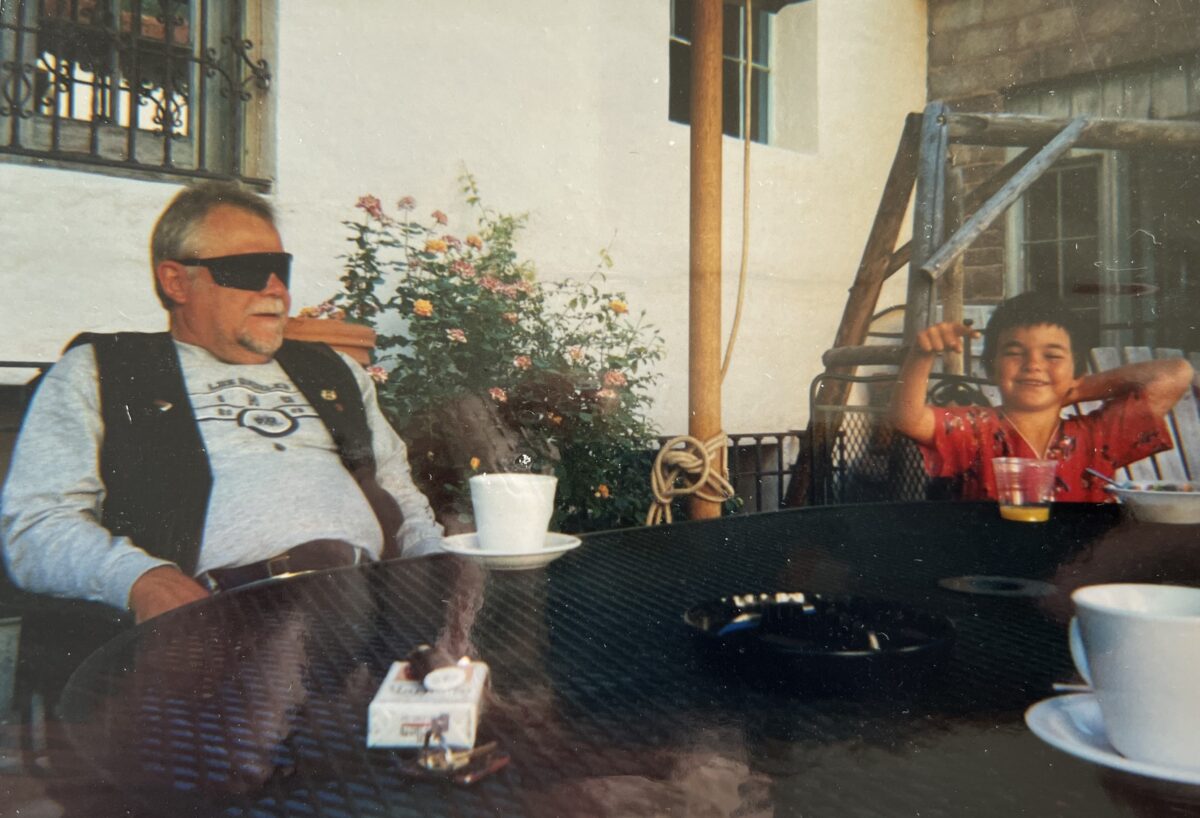
It was possible that she left the door open as an invitation, but it was far from clear. There would have been no other reason to leave it open in a crowded hotel late at night, for security reasons if no other. Maybe she thought that I would eventually come by and come through the door to fill that empty space in her chest that we seemed to share. Or maybe she just laid down for a minute to comfort Johnny, closed her eyes, and slipped into sleep. If I knew I would tell you, but I don’t.
It just didn’t seem right to enter the room, while at the same time I felt the urge to honor her apparent desire for a continued connection, (or was it only mine in a case of projection?). I sat outside the door like a loyal watch dog, despite the absence of any real threat. After an hour or so I moved to a lounge chair about 20 feet down the hall. Her door remained open and the light continued to illuminate the sleeping Madonna and child.
I sat there until the golden rays of the Arizona sun began to leech into the hallway from the high lobby windows. Her door was still open and the light was still on. She hadn’t moved and was breathing heavily on her pillow. I stood up and quietly closed her door then walked slowly to my room, took a shower and packed. I saw her and the boy later at the breakfast room and she was clearly not feeling well. The spell of the evening was broken and the after effects of too much wine clearly dominated. Comfortable companionship and intimate revelations were replaced by formal courtesy and polite conversation.
We ate and drank coffee quietly. I eventually stood and said goodbye and ‘it was great to meet you,’ dragged my gear to the gravel lot, and casually rode away into the mountains. She was heading for the Colorado River or the Grand Canyon, she said, the last leg of her journey. But I have never stopped thinking about her and that gravitational attraction we both felt that drew us together. Looking back, I hope her void has been filled and she feels whole and complete, because with so much goodness inside her, she deserved more than the difficulty that life had delivered to her.
After over 20 years, I was thinking about Commie Girl the other day and did an online search to see if she was still writing in the OC. I discovered that she was involved with a new publication in Michigan, but still generating the same fiery, irreverent social observations, which made me smile. I sent her an email that evening. I had no expectation, or more probably I had only the expectation that she would ignore my note, as I seem to recall she had done in the past when I had sought to connect with her in California. Anyway, this was what I wrote.
This is an unusual missive from a past life encounter.
I met you in Winslow Az. about 22 years ago, not sure the exact year.
You were on a tour with your nephew (Johnathan or Johnny?)
And I was on a Harley ride. We had dessert and some wine.
I found your door wide open when I went to bed and closed it.
I saw you the next morning on the patio drinking coffee and said good bye. End of story as they say, but I never forgot you.
I have written a series of stories lately; histories blended with fiction (isn’t all memory?) In sharing those stories you came up and I floated down the memory stream.
Hope the publication is doing well and happy to send a few bucks.
Can I get a signed copy of your book if I do?
I see that you are a wife and mother. How bourgeois.
Hope life is giving you every thing you want or at least what you need and that you are finding interesting material to write about.
By the way, my name is Bill.
The next morning, as I was sipping my coffee and scanning emails, I discovered a reply from Rebecca. No, words from the explosive concoctor of fiery rhetoric. Just a picture: a photograph of me leaning back in a chair in the patio of the La Posada Hotel with a cup of coffee in front of me on the morning we parted. And Johnny, beaming over a bowl of sugary cereal with a huge spoon, ready for the next leg of their big wide world adventure. Later she told me she did remember me. “I knew who you were, instantly,” she said. “His name is Jimmy. He was my brother, whom I raised as a son.”
There is a happy ending as they say. She is married with a daughter of her own and Jimmy is grown, healthy and happy, and working as a cook somewhere in the midwest. But I wonder now what strange rich experiences she waded through at a silent unreachable distance and stories that I will never hear. And whether any of this is actually true, or is a dream or emotional invention, I have a warm vivid memory that is both rich and mysterious, based on two, brief interactions over 20 years apart, with no promise or prospect of perpetuation. That is a part of what makes the experience and the memory so precious. Pen

